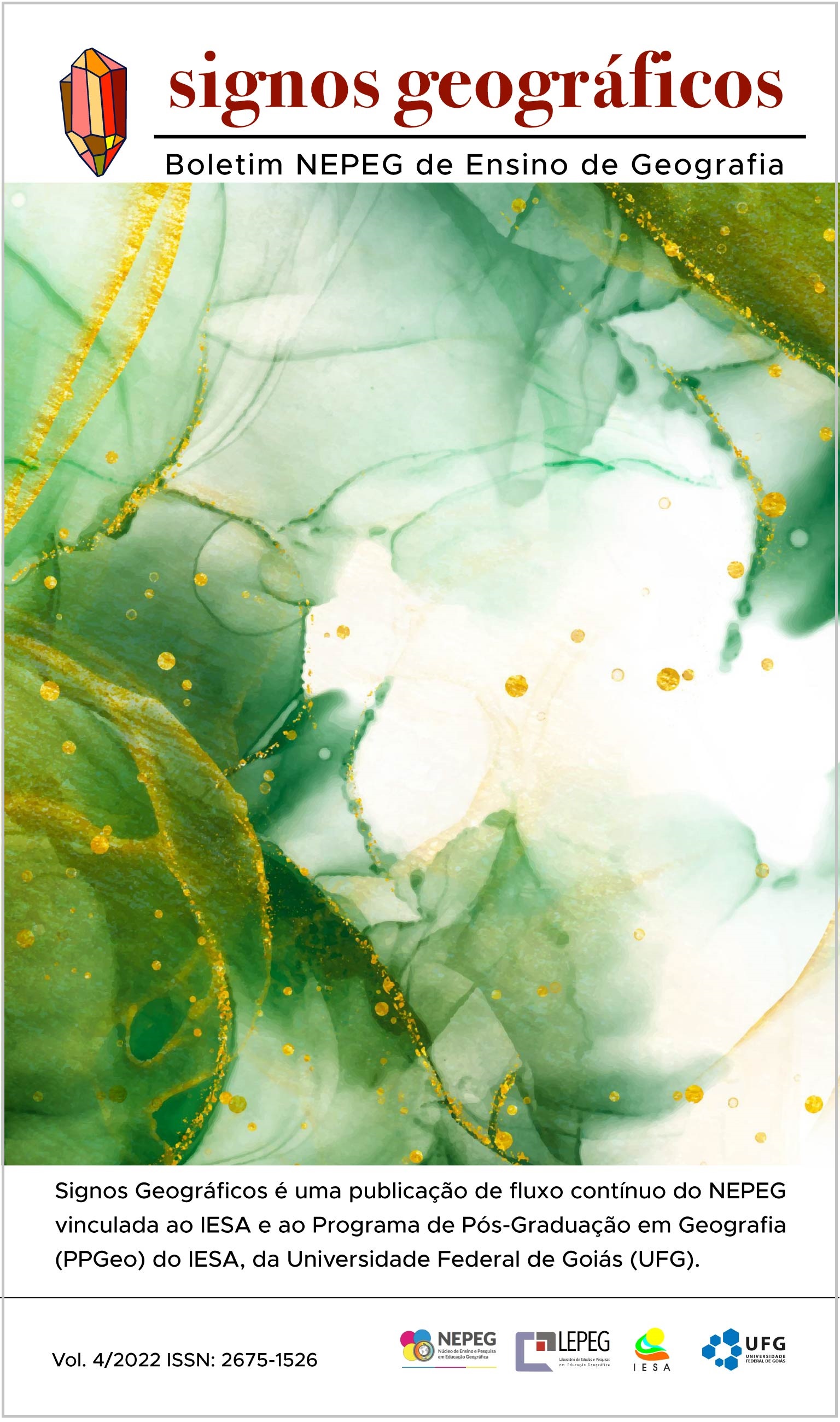BEYOND VOTING: GEOGRAPHY AND POLITICS FOR CITIZENSHIP EDUCATION
DOI:
https://doi.org/10.5216/signos.v4.71718Keywords:
political game, participatory budget, geography teachingAbstract
The article presents the result of research on how Political Geography can contribute to the exercise of citizenship education. Besides the theoretical aspects related to the concepts of politics, citizenship, geographical scale, and federative pact, the application of the Politics Game in basic education is reported. At the UFTM (Federal University of the Triângulo Mineiro, Uberaba/MG campus), the undergraduate students enrolled in the Political Geography course coordinated the activities carried out with high school students in four stages: I) two theoretical classes for the elaboration of the diagnosis; II) fieldwork in the municipal offices; III) three theoretical classes after the fieldwork for data systematization and preparation for the game; IV) application of the Game of Politics, debate and final plenary. Among the results achieved, we highlight the reconstruction of the concept of politics, initially identified as a resistance to debate among high school students, and its expansion beyond the polarizations and hostilities between political parties. The recognition of possible ways to participate in the politics of the municipality through access to public information, especially regarding the participatory budget. Finally, the potential of the experience analyzed and of the research still underway to contribute to the strengthening of geography teaching as a way to concretize the formation of citizens committed to democracy and to the construction of new political practices capable of transforming the destiny of their community is distinguished.








